#Mateus solano
Text







"Ouch."
VIVER A VIDA (2009)
#novelaedit#braziliansource#tvedit#brazilian tv#novelas#viver a vida#alinne moraes#mateus solano#manoel carlos#ship inspo#kiss#romancegifs#Luciana x Miguel#br posting#EP 12#those are his parents btw lmao
15 notes
·
View notes
Text
+18
My crush guys and type of sex with them
Aries IZZY STRADLIN = sex on a table

Taurus Pierre Bouvier = ROMANTIC & ROUGH

Gemini Alex Band = MORNING SEX

Cancer James Maslow = WATCHING PORN

Leo Ben Barnes = SUCKING EACH OTHER

Virgo Julian Casablancas = BLINDFOLD & HANDCUFF
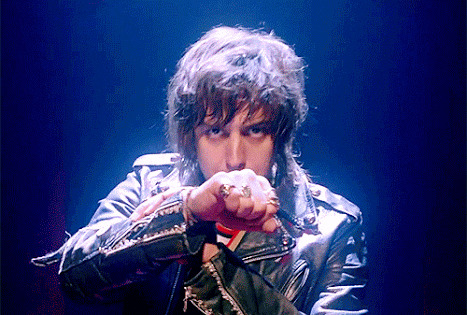
Libra Sam Witwer = HOT TUB SEX

Scorpio Devon Bostick = PHONE SEX

Sagittarius Alex Gaskarth = DIRTY DANCING

Capricorn Carlos Villagran = TEACHER/STUDENT
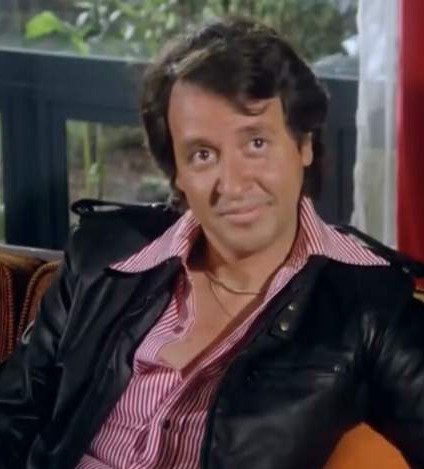
Aquarius Avan Jogia = ANGRY SEX

Pisces Mateus Solano = CRAZY SEX POSITIONS

#izzy stradlin#pierre bouvier#alex band#james maslow#ben barnes#julian casablancas#sam witwer#devon bostick#alex gaskarth#carlos villagran#avan jogia#mateus solano
68 notes
·
View notes
Text







Mateus Solano como Professor Licurgo no filme "Turma da MônicaJovem: Reflexos do Medo", gravado em 2023 e lançado em 2024 ♡
#mateus solano#mateussolano#bastidores#tmj#turma da monica jovem#turma da mônica#filme nacional#cinema
9 notes
·
View notes
Text










Larissa Maciel e Mateus Solano em Maysa: Quando Fala o Coração (2009)
#maysa quando fala o coração#maysa#maysa monjardim#maysa matarazzo#jayme monjardim#larissa maciel#mateus solano#tv globo#samba canção#bossa nova#mpb#ronaldo boscoli#manoel carlos
1 note
·
View note
Text
Turma da Mônica Jovem: Reflexos do Medo ganha prévia inédita
Mônica e Magali aparecem em cena inédita de Turma da Mônica Jovem: Reflexos do Medo.
#turmadamônica #turmadamônicajovem
A trama Turma da Mônica Jovem: Reflexos do Medo acaba de ganhar uma cena inédita para despertar ainda mais o interesse dos fãs da turma que marcou a infância de milhares de brasileiros.
A cena traz Mônica, interpretada por Sophia Valverde, de As Aventuras de Poliana, e Magali, interpretada por Bianca Paiva de Chiquititas. Na prévia, as personagens partilham suas angústias adolescentes e…

View On WordPress
#Ataíde Arcoverde#Bianca Paiva#Carol Amaral#Carol Roberto#Cascão#Cebola#Eliana Fonseca#Giovanna Chaves#Júlia Rabello#Magali#Maria Bopp#Mateus solano#Mauricio de Sousa#Maurício Eça#Mônica#Rodrigo Fernandes#Sophia Valverde#Theo Salomão#Turma da Mônica#turma da mônica jovem: reflexos do medo#xande valois#Yuma Ono
0 notes
Text
Imagine not being brazillian and not knowing who Félix Khoury is
0 notes
Text
PUTA MERDA MANO SAIU O TRAILER
youtube

#O QUE EU FAÇO MANO EU TÔ TREMENDO#“kkkk tio Morcego tá tremendo iiiihh” TÔ SIM ME DEIXA EU TÔ FELIZ#MDS É MUITA INFORMAÇÃO TEM O MATEUS SOLANO#TEM LEGIÃO URBANA TOCANDO#TEM A MAGALI BRUXA#TEM A ATUAÇÃO QUESTIONÁVEL DO YUMA ONO#TEM ATÉ O CEBOLA FICANDO NELVOSO#espera preciso processar tudo o que vi pra dizer o que eu penso no momento eu só consigo gritar de animação#amém senhor Mateus Solano tá no filme#ele vai ser a salvação se o filme for uma bosta#DEPOIS EU FALO MAIS DEIXA EU PIRAR MAIS UM POUCO#tio morcego tá doidão#tio morcego tá tagarela
5 notes
·
View notes
Photo

by Mateus Solano
27 notes
·
View notes
Note
hi! could you possibly share the intercept new report about gay men and their misogyny? i know this isn't really about br politics, and im not even sure if it is in English, but i think it is really important to be shared
I hope it's not too late 😅
-
Gay men and misogyny: no more ignoring this problem
'Don't talk about vaginas around me': for a long time, we ignored the disqualifications of women and the feminine made by gay men. No more.
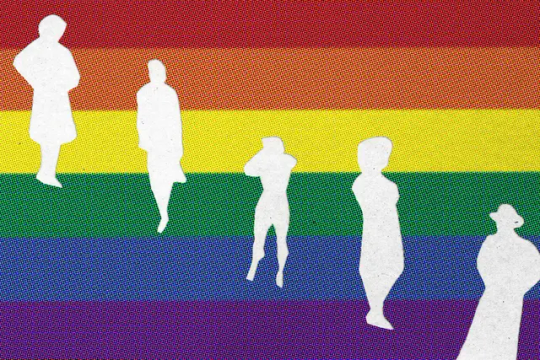
"If I liked women, I would have become a gynecologist."
"The law of gravity is a crime against women."
“Funny” gay guys, usually white and showing a certain hatred towards females, are a very common social type in contemporary pop culture. The character Felix “Bicha Má” ["Evil Fag"], played by Mateus Solano, from the Brazilian soap opera “Amor à Vida” [Love For Life], is an easy example in Brazilian lands – the sentences that open this text are his. But this sharp-tongued young man who directs much of his bitterness towards women, including friends and relatives, has never only lived on screens: he is a common presence in our daily lives.
"Oh, don't mention a vagina around me, I get all messed up."
"My goodness, this singer was beautiful, but she got old and ugly."
"Get out of here, I don't even like cracks."
I can't say how many times I've heard phrases like that from fellow gay men. For a long time, these ways of disqualifying women – despite the certain discomfort felt by every person who is repeatedly the target of prejudice – were endorsed and reflected by women ourselves. Offenses dressed as “I was just joking” have largely naturalized these forms of disqualification, but the good news is that, in an environment in which feminism has gained ground, what seemed to be just a joke is now named by the right word: misogyny.
This is a delicate subject, since we are talking about people – mostly cisgender gay men – who have been and still are victims of a series of violence, whether at home, at work, on the streets. Perhaps it was precisely this that made us, cisgender or transgender women, leave the discomfort of being made fun of in the background. After all, confronting homophobia in a sexist country like Brazil is no simple task. But if this machismo affects homosexual men, what can we say about its presence in women's daily lives? And what can we also say about the homophobia directed at cis/trans homosexual and bisexual women, especially invisible and also targets of “jokes” by gay men?
“I had a very close gay friend, like a brother. We went out to parties together and often slept in the same bed, at my house or his. Several times, as if he were joking, he said that he was terrified of vaginas, that he was born through a cesarean section so he wouldn't have to go through one. He'd gesture the sign of the Cross and said ‘God forbid’, smiling,” says Adriana Conceição, 47 years old, a telemarketing operator from Recife who, like several other women, took a while to classify the guy's actions with the right word.
Game developer Renata Gomes, also 47 years old, found herself at the center of a virtual outrage after questioning a post by a gay Brazilian film critic living in the United States. In the post, he talked about missing Brazil, since people worked a lot more in the USA. Faced with the possibility of his speech being reductive and stereotypical, he began to treat Renata as “ugly”, “militant”, “frustrated”. Furthermore, several of the critic's friends entered the comments to reiterate the delegitimization of Renata's speech.
Younger people also identify the problem: aware of the issue, Curitiba university student Nicoly Grevetti, aged 24, listened to several people who circulate in LGBTQIA+ spaces about the subject and wrote a text about it. In it, she also identifies how pop and queer cultures, supposedly safer and “modern”, also present misogynistic elements.
One example is the use of the term “fishy”, constantly evoked to define drag queens who closely resemble cisgender women (that is, who have a high degree of “passability”). The expression refers to the smell that these women's vaginas supposedly have. “[Cisgender] women grow up believing that their private parts are disgusting and spend their entire lives using products to reduce their natural odors, which can lead to various diseases. Having female genitalia as something disgusting is so common for this group, that you can find countless reports of women talking about it on the internet,” she wrote. The topic was the subject of discussion in the famous series RuPaul’s Drag Race, generating academic works like this one. Cisgender drag queen Victoria Scone, a former participant in the show, also spoke on the topic.
A few months ago, I experienced a significant episode of this machismo and misogyny that had been attenuated for a long time in relation to gay men. I was in a doctor's office very close to a shopping center in the south of Recife. After the end of the consultation, the dermatologist – homosexual, white, in his late thirties, and anti-Bolsonaro in the last elections – lightly tapped my hand and said: “Okay, now you can go for a walk in the mall.”
Especially on that day, I was rushing to finish presenting a lecture that I would give the following day, online, at the University of Coimbra. Obviously, if I wanted to window shop or spend the afternoon reading celebrity magazines, it wouldn't be a problem (in fact, I love it). The point here was the doctor's obvious intention to fit me into the cliché of the futile and consumerist woman, a sexist and anachronistic way of disqualifying the female gender. Icing on the cake: while I was leaving, the gay boy warned me not to forget to take “the boss” to my next appointment. He was referring to my romantic partner.
If it's feminine, it's smaller
The misogyny present in the practices of part of this population is so evident that it goes beyond the boundaries of gender and occurs between equals: it is common to see it operating even among gay men themselves. Research I carried out in partnership with Professor Ricardo Sabóia, from the Federal University of Pernambuco, analyzed the relationship between body and celebrity on the Grindr app. I was astonished by both the hatred towards what is socially seen as feminine and the extremely high level of normativity, standardization, and even elitism. “'I'm not into effeminate guys” is a constant, as is “I'm not into fat guys”.
In this environment of extremely high value for toned biceps and abs, being masculine – and looking very masculine – is the strongest currency. Thus, men seen as “little women” are disqualified. This is what researcher Carlos Alberto de Carvalho calls “misogynistic heteronormativity”, in which the masculine and masculinities are placed as positive – on the other hand, femininities and the feminine are valued negatively. It is, therefore, an environment of hegemonic masculinity and subaltern masculinities.
The global soap opera “Terra e Paixão” [Land & Passion] currently features an illustration that refers to this scenario, with the character Kelvin (actor Diego Martins), an “effeminate” gay man in love with Ramiro (Amaury Lorenzo), the masculine man, self-declared heterosexual, who desires the other person, but still doesn't know how to deal with the situation. What diminishes the power of the first is precisely its proximity to what is considered “womanly”. But, looking at Grindr, even the desirable “brucutu” [Brazilian slang for a brute and rude man] has his limits: issues such as level of education have weight in the app used mostly by gay and bisexual men, where it is common to read “no illiterates”.
The LGBTQIA+ culture, in which rich and middle-class white homosexual men repeatedly appear to discriminate against other peers from the same community, is a central sociological issue for discussing social inequalities not only in Brazil, but throughout the world. “Queer cultural production has helped to reproduce class distinctions based on the hegemony of representations of middle-class gays”, writes Lisa Henderson in the article “I’m not/I'm not into: circulating meanings in the presentation speeches of the Grindr app”, by Rafael Grohmann. In the same text, Juan Marsiaj summarizes: “Such a strategy can lead to the acceptance of a type of gay (white, middle class), seen as a model of citizen-consumer, and a greater marginalization of all other 'debauches' who do not fit this way. In more Brazilian terms: there is a risk of accepting rich gays and further marginalizing poor queers.”
Discrimination on the part of this part of the queer community was evidenced in a historic episode in the 1970s, in super liberal New York. In June 1973, the Christopher Street Liberation Day Rally took place in the city, a demonstration held in favor of the rights of the queer population – which, at that time, as we will see, in fact was basically limited to white, middle-class gay women and men.
But, among the public, was the activist Sylvia Rivera, a transvestite who in 1971 had created the Revolutionary Action of Street Transvestites, STAR. Rivera had been trying to get on stage for some time, but Jean O’Leary, a lesbian white radical feminist, acted to prevent her from participating. A sample of how, many times, cisgender homosexual/bisexual women also enact the same discrimination as homosexual/bisexual men.
When he finally managed to grab the microphone, Rivera took aim at the hundreds of mostly white gay men and women present. Her speech is a synthesis of the violence experienced by queers who are too effeminate, too poor, too black, or too latine.
“I've tried to speak out here all day for your gay brothers and sisters in jail. They write to me every damn week asking for help – and you don't do a damn thing for them. I lost my job and my apartment for gay liberation… and you guys treat me this way?” she screamed.
The anger had yet another weight and meaning: alongside another important name, the transvestite Marsha P. Johnson, Rivera went down in history as one of the first to face police repression at the New York bar Stonewall Inn, on June 28, 1969. The conflict was the trigger for a fundamental civil movement for human rights – so much so that the date ended up becoming what was then called International LGBT+ Pride Day.
The question remained: how could that engaged audience repudiate the person who, at just 18 years old, spoke out against violence that was not directed just at her? How could they recriminate someone who pulled the trigger that would benefit precisely that white homosexual population?
Rivera and Johnson, who lived in a shelter, were profoundly different from the majority of the public who would return to their comfortable homes after the demonstration. Unlike Rivera, the daughter of a Venezuelan mother and a Puerto Rican father, most had not spent nights in jail or suffered police rape. The activist died homeless, alone, without the care she should have received. Marsha P. Johnson, the decorated, made-up, smiling, super queer transvestite, was murdered and her body thrown into a river.
Thinking historically and humanly about both is a central issue in the debate on hatred of “feminine” and other diverse discriminations present among the LGBTQIA+ population. The right-wing has long opened a war against women, and the rise of red pill assholes is just one of the phenomena of this reality. It still includes names like former federal deputy Daniel Silveira, who broke the plaque with Marielle's name alongside Rodrigo Amorim. [Note from the translator: Marielle Franco was a black bisexual favela-born leftist councilwoman who was assassinated by militias.]
But, as it turns out, misogyny is not exclusive to right-wing radicals and conservatives. And if Sylvia and Marsha were on the front line to guarantee the rights of millions of people, without distinction of creeds, race, genders, and degrees of “femininity”, it is worth asking: when will cisgender gay men, mostly white and middle class, join, with emphasis and strength, debates such as the right to abortion, employment, and wages, issues of life and death for the majority of black Brazilian women? When will the majority of this same group take a stand on the thousands of rapes that mainly victimize girls and teenagers? What collectivities, after all, are we talking about? As Jorge Ben would say in the song Zumbi: I want to see. We're here.
Source, translated by the blogger.
#LGBT#feminism#asks#anonymous#translations and summaries#mod nise da silveira#image description in alt
23 notes
·
View notes
Text

Bem vindos à nona enquete!


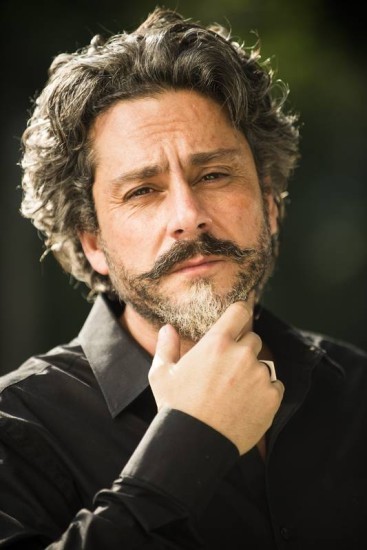






Mais informações sobre o torneio aqui
Como sempre, podem me marcar se fizerem campanha (não incomoda não, é a parte mais divertida) e eu reblogo com a tag boca de urna
87 notes
·
View notes
Text
Round 2

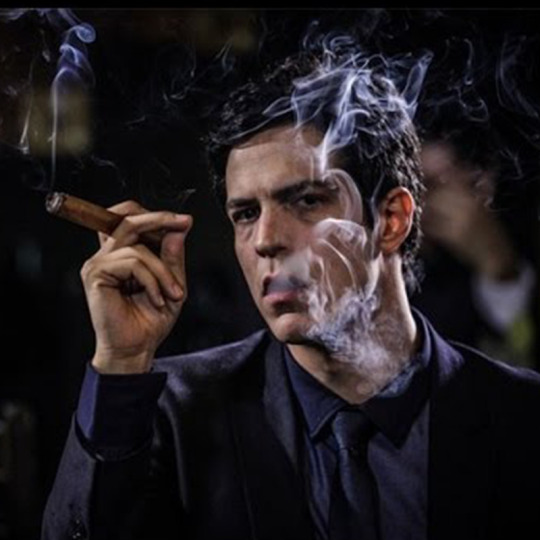
Rio Morales. An immigrant who works in the medical field. She is Mile's Morales mother, and a very comprehensive one at that, often being a mediator between her husband and child. She tries to encourage Miles the best way she can. Rio also got angry at him for not getting an A in Spanish. Canonically Puerto Rican.
Félix Khoury / Brazilian
Submission said: Felix was one of the best villains from the Brazilian teledramaturgy. He is complex. Problematic. Nasty fucker who does bad things. Unapologetic. Evil. Manipulative. Unlikeable. Three dimensional. Threw a newborn baby in the thrash. Villainous, but got the whole country cheering for his redemption because he was just too charismatic. Also was the first televised gay kiss on a primetime soap opera here in Brazil. Mateus Solano made him a reality and I love him.
20 notes
·
View notes
Text









Mateus Solano como Professor Licurgo no filme "Turma da MônicaJovem: Reflexos do Medo", gravado em 2023 e lançado em 2024 ♡
#mateus solano#mateussolano#bastidores#filme nacional#cinema#tmj#turma da monica jovem#turma da mônica
3 notes
·
View notes
Text
Glória Pires: A Estrela Cotada para Brilhar no Troféu Talentos da Dublagem Gay
Neste ano, o Troféu Talentos da Dublagem Gay, evento anual no Rio de Janeiro, está prestes a homenagear uma grande personalidade do mundo artístico. Dentre as atrizes e atores que já foram honrados no passado, como Claudia Raia, Débora Secco, Taís Araújo, Lília Cabral, Glória Perez, Vera Fischer, Marcos Caruso, Mateus Solano, surge o nome de Glória Pires como a escolhida para ser a grande…

View On WordPress
2 notes
·
View notes
Text
Turma da Mônica Jovem ganha trailer inédito e revela vilão
Os jovens do bairro do Limoeiro estão de volta com um trailer inédito do novo filme da Turma da Mônica Jovem: Reflexos do Medo. Venha conferir!
#turmadamonicajovem #filmes #trailer #sophiavalverde
Nesta sexta-feira (01), o novo filme da Turma da Mônica Jovem: : Reflexos do Medo acaba de ganhar um novo trailer. Os jovens do bairro do Limoeiro estão de volta trazendo muito mistério e suspense no novo longa da Bronze Filmes baseado nos personagens de Maurício de Souza.
Com a direção de Maurício Eça (A Menina que Matou os Pais, 2020), enquanto a dupla Regina Negrini e Antonio Arruda (Cidade…
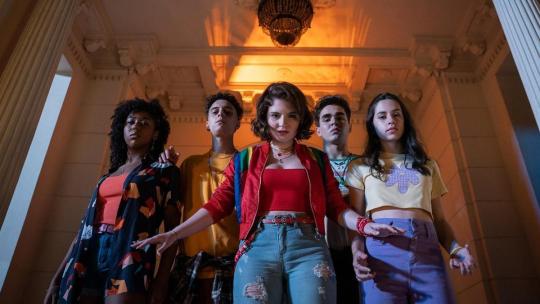
View On WordPress
#Cascão#cebolinha#Magali#Mateus solano#mauricio de souza#Mauricio Eça#Sophia Valverde#turma da monica#Turma da Monica Jovem: Reflexos do Medo
1 note
·
View note












